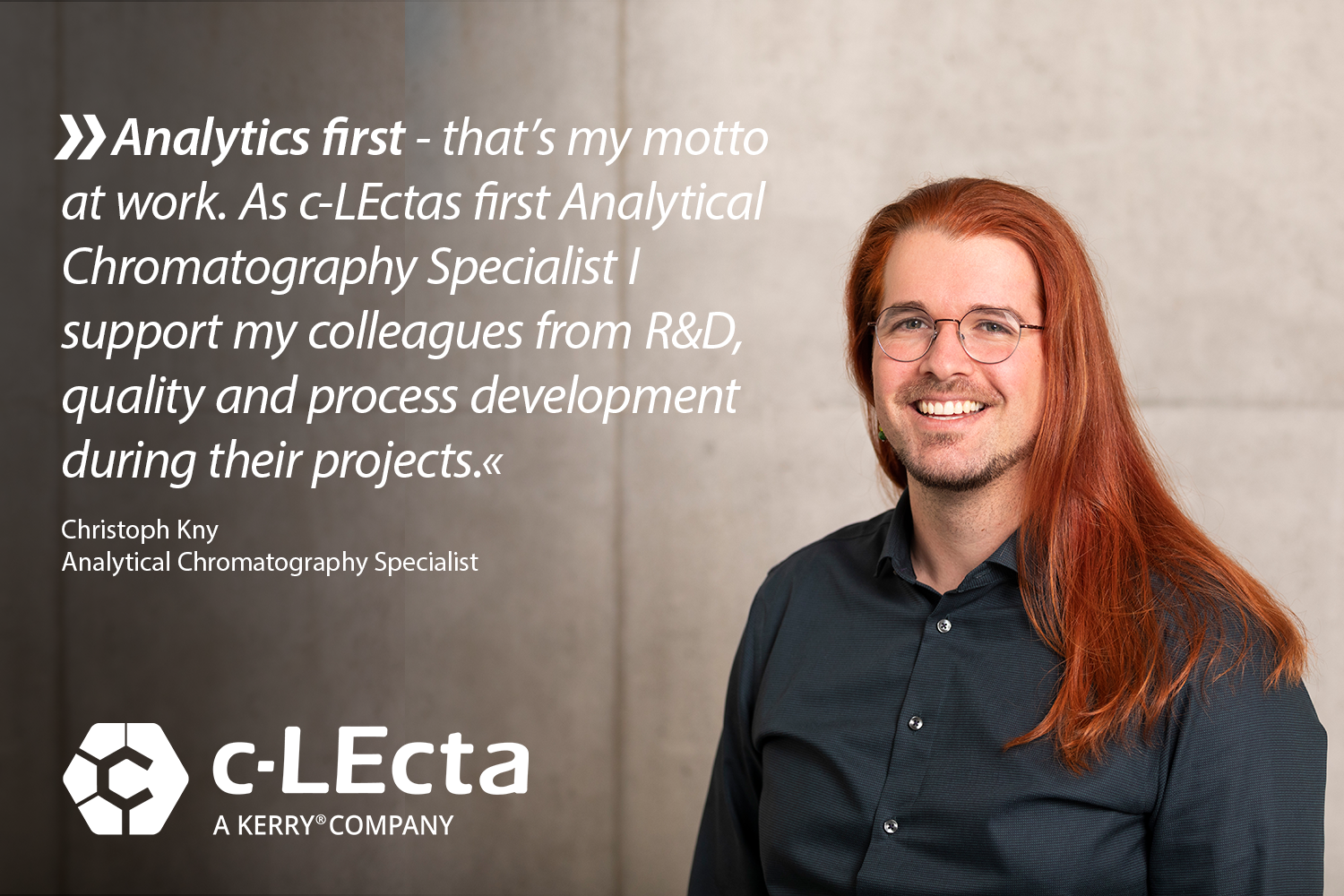Analytics first - What does an analytical chromatography specialist do?

Analyses are one of the core tasks in enzyme development and are required in almost every project. Christoph Kny has been working as an Analytical Chromatography Specialist at c-LEcta for 3.5 years and is responsible for the technical equipment and user support of the entire analytical section.
Christoph describes his work as follows "Analytical Chromatography starts when an enzyme has been selected for development and the enzyme optimization process needs to be evaluated in terms of activity, specificity and performance of the desired target enzyme".
The analytical section currently consists of 6 HPLC systems, two ion chromatography (IC) and one LC-MS. All systems are equipped to take samples directly from microtitre plates. Up to 1000 samples can be submitted and analyzed automatically.
HPLC (High Performance Liquid Chromatography) is a common analytical method in which substances are separated under high pressure using special columns and their components are then physically analyzed and digitally evaluated. This provides information about the effectiveness of the enzyme, such as how quickly it produces the product and whether any unwanted by-products are formed.
A new instrument has recently been added to Christoph's fleet. Where simple HPLC with UV spectroscopy reaches its analytical limits, ultra-HPLC (UHPLC) with a mass spectrometer (MS) comes into play. The mass spectrometer can detect the smallest components by their mass, where the UV spectrometer can no longer provide results. Or, during the development process, an unexpected component may appear that can be identified using a mass spectrometer.
In a recent example, the purity analysis of a sample was found to be below a certain target level. MS analysis identified an unexpected peak as a component of a microplate that had separated from the plastic during sample preparation. This peak could be excluded as an unwanted by-product of the enzyme reaction and the corrected assay resulted in a high product purity that met the target.
"It is exciting to see that even small amounts (1 µM) are sufficient for UHPLC-MS to give results that would not have been visible with a UV/Vis spectrometer. This saves us a lot of detours and also reduces the analysis time many times over," says Christoph.
Christoph's role as Analytical Chromatography Specialist includes technical support and maintenance of equipment including HPLC, UHPLC, IC and GC. He also provides support to all users of the equipment, conducting training sessions and assisting with any questions or problems that may arise. Christoph started as a Research Associate at c-LEcta and quickly established himself as an expert in the field of chromatography. In the laboratory, he now supports more than 35 colleagues from R&D, Quality and Process Development as an Application Support Engineer.
